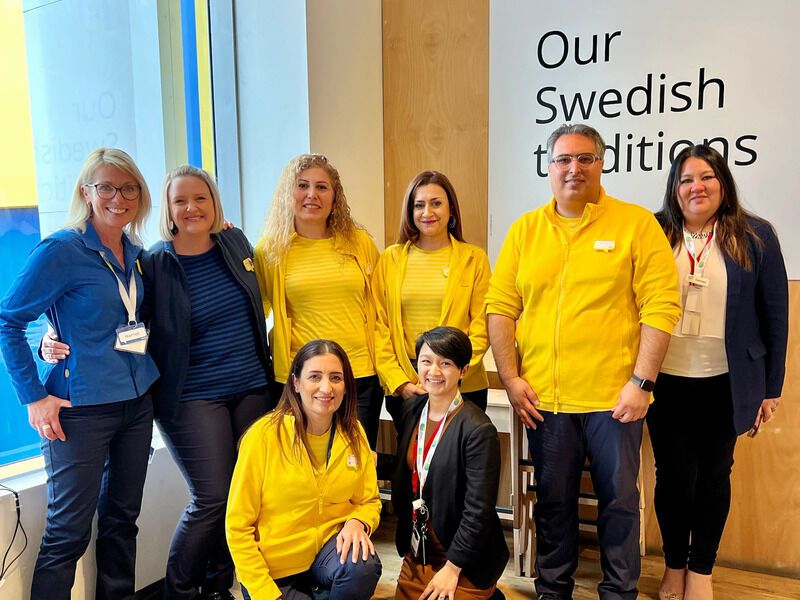
IKEA is Extending its Refugee Employment Pilot
Colin Smith — June 3, 2024 — Social Good
References: ikea & fastcompany
IKEA has demonstrated a continued commitment to supporting refugees and asylum seekers through its Refugee Workforce Inclusion program. Initially launched as a pilot, the program has evolved into a permanent recruitment pillar within IKEA Australia. The initiative began in 2021 and has since transitioned from an 8-week paid work placement to providing secure, ongoing employment opportunities for refugees and asylum seekers from diverse backgrounds. In partnership with Community Corporate, the program has offered paid work placements to more than 180 individuals from 23 different cultural backgrounds, speaking 40 different languages. In total, the pilot resulted in the employment of roughly 3,000 refugees by the beginning of 2024.
Globally, IKEA has announced new commitments to further the integration of refugees into the workforce by 2027. The Ingka Group, IKEA’s largest retailer, aims to increase the employability of an additional 3,000 refugees and asylum seekers by the end of 2027. This goal builds upon the success of the Skills for Employment program, which surpassed its 2019 target by supporting 2,935 asylum seekers and refugees between 2019 and 2023, with 54% finding employment within or outside IKEA.
Image Credit: IKEA
Globally, IKEA has announced new commitments to further the integration of refugees into the workforce by 2027. The Ingka Group, IKEA’s largest retailer, aims to increase the employability of an additional 3,000 refugees and asylum seekers by the end of 2027. This goal builds upon the success of the Skills for Employment program, which surpassed its 2019 target by supporting 2,935 asylum seekers and refugees between 2019 and 2023, with 54% finding employment within or outside IKEA.
Image Credit: IKEA
Trend Themes
1. Refugee Workforce Integration - Companies are increasingly incorporating structured employment programs to assimilate refugees into their workforce, providing pathways to sustainable careers.
2. Corporate-social Partnerships - Businesses are forming alliances with social enterprises to enhance recruitment processes and training for marginalized communities.
3. Multi-cultural Workplace Environments - Organizations are leveraging diverse cultural backgrounds to foster inclusive and dynamic workplace environments.
Industry Implications
1. Retail Industry - Retailers are developing inclusive hiring initiatives to diversify their workforce and improve social impact.
2. Human Resources Solutions - HR service providers are designing innovative recruitment and onboarding programs tailored for refugees and asylum seekers.
3. Corporate Social Responsibility Initiatives - CSR-focused industries are prioritizing refugee employment programs as a significant aspect of their social impact strategies.
3.1
Score
Popularity
Activity
Freshness























